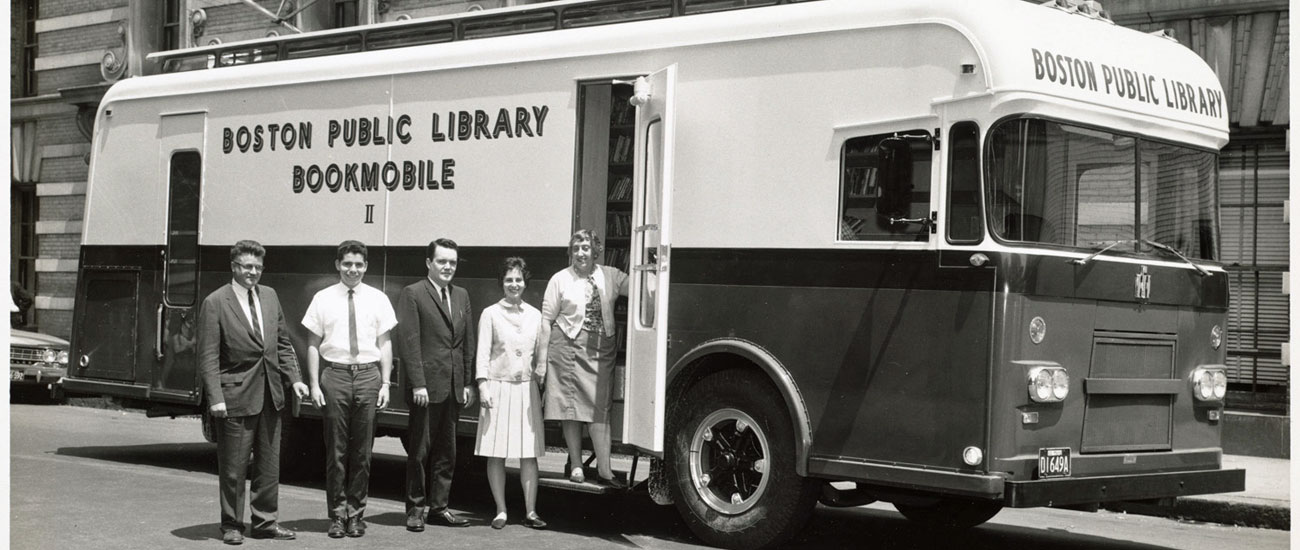In Boston the library comes to you. Continue reading
boston
Everyone’s talking about the latest issue of Rolling Stone, with the picture of alleged Boston Marathon bomber Dzhokhar Tsarnaev on it. Continue reading
All things Boston Marathon bombing investigation related go here. Fluffy stuff goes in regular OT. Continue reading
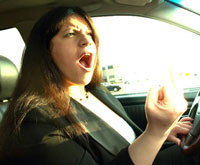 There may be New York plates on the cars I drive now, but I am a Boston Driver, born and bred.
There may be New York plates on the cars I drive now, but I am a Boston Driver, born and bred.
Let me be clear for those who have never had the pleasure of driving with us Masshole license holders: We will kill you. My husband, who is from San Diego, is terrified to drive with me. He says he gets frightened when I yell at other drivers. First off, I say, if the motherfuckers didn’t deserve it, I wouldn’t have to yell. Second, it’s not like the motherfuckers can hear me. Continue reading
The epicenter of more than 50 institutions of higher learning with a population of over 150,000 college and grad students, Boston has been inspiring and incubating musicians and bands ever since the early days of rock ’n’ roll, starting with the Standells, who weren’t even really a Boston band but a Cali group who recorded what’s probably still the most emblematic Boston song of all, the 1966 classic “Dirty Water”
I’ll get the ball rolling with half-dozen of my favorites (in some cases I actually was lucky enough to meet a few of these people) but if you don’t have at least one favorite Band in Boston, you must be brain-dead. So crank up the volume, blast that first power chord. And “One two three four five six seven …”
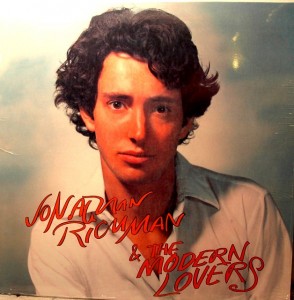 “Roadrunner” by Jonathan Richman and the Modern Lovers: an iconic Boston tune, replete with shout-outs to Stop’n’Shop and Route 128. This is perfect highway music, simple yet driving rhythms overlaid with Richman’s unmistakable stuffed-sinus voice – it’s also one of very few JR&ML songs that’s not flat-out off-the-wall: “Abominable Snowman in the Supermarket,” “I’m a Little Dinosaur,” and “Dodge Veg-o-Matic” are much more characteristic. (I met Richman a few times; to call him “fey” is to understate the effect by several orders of magnitude, but his band’s music was and remains more seminal than many people recognize.)
“Roadrunner” by Jonathan Richman and the Modern Lovers: an iconic Boston tune, replete with shout-outs to Stop’n’Shop and Route 128. This is perfect highway music, simple yet driving rhythms overlaid with Richman’s unmistakable stuffed-sinus voice – it’s also one of very few JR&ML songs that’s not flat-out off-the-wall: “Abominable Snowman in the Supermarket,” “I’m a Little Dinosaur,” and “Dodge Veg-o-Matic” are much more characteristic. (I met Richman a few times; to call him “fey” is to understate the effect by several orders of magnitude, but his band’s music was and remains more seminal than many people recognize.)
Interestingly, “Roadrunner” is basically lifted from the Velvets’ “Sister Ray” though in place of Lou Reed’s typically Warholian, debauched detachment, Richman achieves a weird earnestness in his paean to the Turnpike. Joan Jett, the Sex Pistols, and Yo La Tengo are among other rockers who’ve covered this propulsive song.
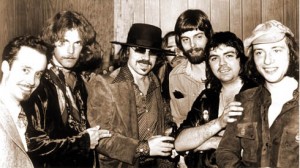 “Funk (All Over the Place)” by Duke and the Drivers: a legendary BU party band with a tight-knit following, DatD coalesced in the early 70’s and still play the occasional reunion concert. If you like blues, r&b, and irresistibly danceable roadhouse music and get one of the ever-rarer opportunities to catch Duke, jump at the chance. Back in the day they toured with the likes of Lou Reed, Steely Dan, the NY Dolls, and ZZ Top, among others. (I’ve had the unlikely pleasure of meeting the shadowy Duke, whose doppelgänger in life and onstage alike is a longtime friend of your humble correspondent. The Duke is also known as André Marine, plutocrat, philosopher and bon vivant.
“Funk (All Over the Place)” by Duke and the Drivers: a legendary BU party band with a tight-knit following, DatD coalesced in the early 70’s and still play the occasional reunion concert. If you like blues, r&b, and irresistibly danceable roadhouse music and get one of the ever-rarer opportunities to catch Duke, jump at the chance. Back in the day they toured with the likes of Lou Reed, Steely Dan, the NY Dolls, and ZZ Top, among others. (I’ve had the unlikely pleasure of meeting the shadowy Duke, whose doppelgänger in life and onstage alike is a longtime friend of your humble correspondent. The Duke is also known as André Marine, plutocrat, philosopher and bon vivant.
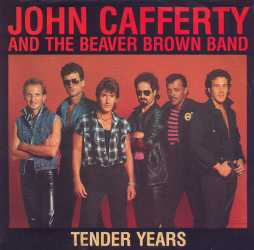 “Voice of America’s Sons” by the Beaver Brown Band: Fronted by John Cafferty, later the eminence grise of Creedence Clearwater Revival, Beaver Brown isn’t strictly speaking a Boston band – they actually hailed from nearby Narragansett, Rhode Island. If you’ve ever heard of them you’re probably a fan of 1983’s cult sleeper Eddie and the Cruisers, for which Cafferty and Beaver Brown wrote the music. This particular song was used on the soundtrack of a Stallone cheesefest called Cobra — I like it for its bombast … naturally mixed with anti-war sentiments: this is New England, after all.
“Voice of America’s Sons” by the Beaver Brown Band: Fronted by John Cafferty, later the eminence grise of Creedence Clearwater Revival, Beaver Brown isn’t strictly speaking a Boston band – they actually hailed from nearby Narragansett, Rhode Island. If you’ve ever heard of them you’re probably a fan of 1983’s cult sleeper Eddie and the Cruisers, for which Cafferty and Beaver Brown wrote the music. This particular song was used on the soundtrack of a Stallone cheesefest called Cobra — I like it for its bombast … naturally mixed with anti-war sentiments: this is New England, after all.
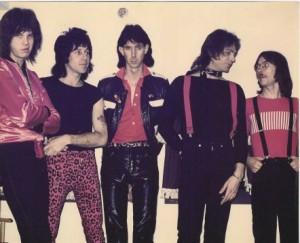 “My Best Friend’s Girlfriend” by The Cars: One of yours truly’s all-time favorite songs, from one of the great New Wave bands ever, Ric Ocasek’s Cars (a name suggested by former Modern Lover David Robinson, also a member of The Cars’ original lineup.) What Abba was to disco, so were The Cars to late-70s and early-80s guitar-synth garage-bands, a juggernaut of catchy, hooky, quirky songs that became hits one after another, from “Just What I Needed” to “You Are the Girl,” their last real blockbuster, in 1987. Ocasek and guitarist Benjamin Orr first met in Ohio but moved to Boston to break into the music business … by the time they were done, Cobain and Nirvana had covered this very song. Weezer too.
“My Best Friend’s Girlfriend” by The Cars: One of yours truly’s all-time favorite songs, from one of the great New Wave bands ever, Ric Ocasek’s Cars (a name suggested by former Modern Lover David Robinson, also a member of The Cars’ original lineup.) What Abba was to disco, so were The Cars to late-70s and early-80s guitar-synth garage-bands, a juggernaut of catchy, hooky, quirky songs that became hits one after another, from “Just What I Needed” to “You Are the Girl,” their last real blockbuster, in 1987. Ocasek and guitarist Benjamin Orr first met in Ohio but moved to Boston to break into the music business … by the time they were done, Cobain and Nirvana had covered this very song. Weezer too.
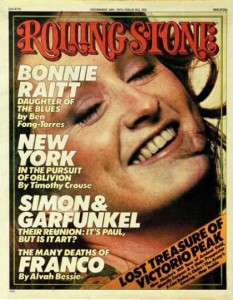 “Walkin’ Blues“ by Bonnie Raitt: Back in the days of which I write, Bonnie Raitt had just dropped out of Radcliffe to play blues guitar round Boston’s clubs; her father was a Broadway star, and she herself would become a pioneering woman in the boys’ club of top-flight traditional slide and bottleneck bluesmen. “Walkin’ Blues” dates from her eponymous first album (1971); this song was written and first performed by the legendary Robert Johnson , who sold his soul to the Devil at the “Crossroads” in return for the meteoric musical career that blazed across the blues firmament for scarcely six years in the 1930’s – and made him the guitar gods’ guitar god. The second of these videos captures not one but two guitar goddesses — Bonnie and EmmyLou Harris — singing backup for Lowell George and Little Feat.
“Walkin’ Blues“ by Bonnie Raitt: Back in the days of which I write, Bonnie Raitt had just dropped out of Radcliffe to play blues guitar round Boston’s clubs; her father was a Broadway star, and she herself would become a pioneering woman in the boys’ club of top-flight traditional slide and bottleneck bluesmen. “Walkin’ Blues” dates from her eponymous first album (1971); this song was written and first performed by the legendary Robert Johnson , who sold his soul to the Devil at the “Crossroads” in return for the meteoric musical career that blazed across the blues firmament for scarcely six years in the 1930’s – and made him the guitar gods’ guitar god. The second of these videos captures not one but two guitar goddesses — Bonnie and EmmyLou Harris — singing backup for Lowell George and Little Feat.
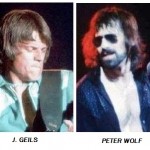 “Centerfold” by J. Geils Band: When I tended bar in a local saloon, Peter Wolf used to come in fairly often and hang out. Many people believe that Peter is J. Geils but he’s not – Peter was the front man, for sure, but J. Geils is actually the guitarist. [insert: JPeter.jpg] Amazingly, the band’s first sign of life was as a mid-Sixties combo called “Snoopy and the Sopwith Camels;” they hit their stride when Peter joined, and “Centerfold” is probably their biggest hit — six weeks at #1 on the Billboard Top 100. The video rocks, too.
“Centerfold” by J. Geils Band: When I tended bar in a local saloon, Peter Wolf used to come in fairly often and hang out. Many people believe that Peter is J. Geils but he’s not – Peter was the front man, for sure, but J. Geils is actually the guitarist. [insert: JPeter.jpg] Amazingly, the band’s first sign of life was as a mid-Sixties combo called “Snoopy and the Sopwith Camels;” they hit their stride when Peter joined, and “Centerfold” is probably their biggest hit — six weeks at #1 on the Billboard Top 100. The video rocks, too.
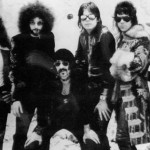 Peter was (still is, I’m sure) a very interesting guy: a renowned, very accomplished painter who studied under Norman Rockwell as a kid; when I rubbed shoulders with him he hadn’t yet married Faye Dunaway, but at that time he had not long before been roommates with surrealist filmmaker David Lynch at the School of the Museum of Fine Arts. Lynch threw him out for “being too weird,” which has gotta tell you something if David Lynch thinks that about you.
Peter was (still is, I’m sure) a very interesting guy: a renowned, very accomplished painter who studied under Norman Rockwell as a kid; when I rubbed shoulders with him he hadn’t yet married Faye Dunaway, but at that time he had not long before been roommates with surrealist filmmaker David Lynch at the School of the Museum of Fine Arts. Lynch threw him out for “being too weird,” which has gotta tell you something if David Lynch thinks that about you.
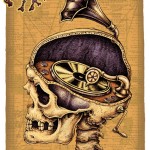 “Digging for Fire” by The Pixies: This song, especially, could be mistaken for David Byrne in the early days of Talking Heads, but the Pixies are figuratively speaking the Boston-based younger sibs of the New York New-Wave crew who made second homes at CBGB and the Mudd Club. Formed in 1986, the Pixies are a bit after my time, but no list however brief of Boston bands could omit them. Critics award them substantial influence over the alternative-rock world of the 1990s, Kurt Cobain was a fan, and … and …
“Digging for Fire” by The Pixies: This song, especially, could be mistaken for David Byrne in the early days of Talking Heads, but the Pixies are figuratively speaking the Boston-based younger sibs of the New York New-Wave crew who made second homes at CBGB and the Mudd Club. Formed in 1986, the Pixies are a bit after my time, but no list however brief of Boston bands could omit them. Critics award them substantial influence over the alternative-rock world of the 1990s, Kurt Cobain was a fan, and … and …
Black Francis (or Frank Black or his actual original name Charles Thompson IV) is the lead singer and main songwriter. Radiohead, U2, and the Strokes cite the Pixies with admiration, and no less a figure than David Bowie declared that the Pixies made “just about the most compelling music of the entire 80s”. Since then the Pixies have broken up and reformed several times.
So there you have it, boys and girls. Let’s give it up for Boston. Or, as Jonathan Richman put it:
Already been to Paris
Already been to Rome
What did I do but miss my ho-ome?
O-oh New England!
